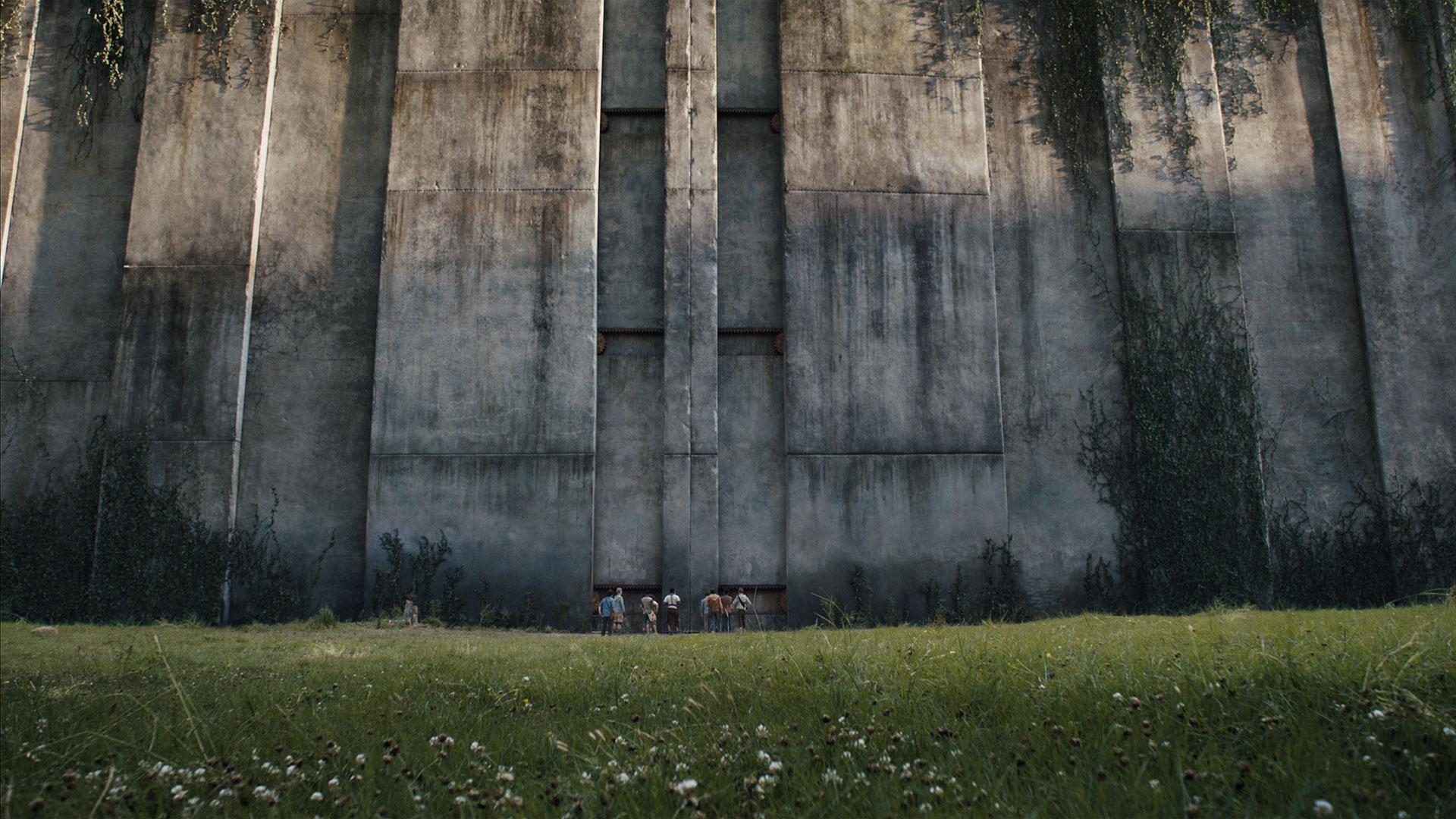The Maze Runner doesn’t waste any time.
From its very first shot, The Maze Runner, based on James Dashner’s 2007 novel of the same name, is a tightly-paced thriller, a light jog at its slowest, a full sprint at its best, always with its eye on the end of the line. Its ending will crack the audience in half, but even then, you can’t accuse this movie of being boring. You can’t call it slow.
Maze Runner opens on a young boy named Thomas (Dylan O’Brien), alone and trapped in a dimly lit elevator, fast approaching an unknown destination. He has no idea who he is, where he is, or how he got there. At this point in time, he doesn’t even know his own name. All he knows is fear.
After three years of living in the Glade, the boys have determined that there’s no escape, except through the Maze.
But he’s not alone, in his fear or his circumstances. When the elevator opens up, Thomas is greeted by dozens of kids, all of them male. They welcome him to “the Glade,” a vast field and rudimentary society, surrounded on all sides by the grand and dangerous “Maze.” Every morning, the doors to the Maze open, inviting exploration. Every evening, the doors close, bestowing death upon anyone still inside. After three years of living in the Glade, the boys have determined that there’s no escape, except through the Maze — a daunting prospect, if not an outright impossible one.
Thomas does not like the word “impossible.” He’s headstrong, a take-charge rebel who sprints first, asks questions later, and then sprints some more. Brave, impulsive, and quite possibly stupid (according to his fellow Gladers), Thomas takes it upon himself to challenge the Glade’s complacency, and to search for a way out of their glorified cage. But even if Thomas solves the Maze, he might not like what he finds near the exit.
Inevitably, and somewhat fairly, The Maze Runner will draw comparisons to other dystopian films based on young adult novels. But it’s no Twilight; it lacks the love triangle that propelled the story of Bella, Edward, and Jacob, if it even has a love story at all. And it’s not The Hunger Games; it lacks the pulse-pounding, mile-a-minute blockbuster scope of Katniss Everdeen’s world.

Instead, Maze Runner is closer in format to an episode of Law & Order, with some shades of Lost for good measure. It’s less of an action movie, and more of a procedural thriller, with Thomas as the fast-running detective, exhausting all options in his search for answers. There are scenes of high-octane action, certainly, but fewer and further between than marketing for the movie would have you believe. More often than not, the film follows Thomas’ investigation, his ever-present question reminiscent of Dominic Monaghan’s iconic line from Lost: “Guys … where are we?”
The answer to that question is … weird. When Thomas and the others learn the secrets they’re after, the information is dumped in a rushed display of madness, that some viewers might like, and others will laugh at. The bizarre, hurried conclusion comes from even further left than left field, but it’s just strange enough to prompt curiosity in the sequel. (And yes, we’re already talking about the sequel. There are three novels in Dashner’s Maze Runner series, so if the movie’s a hit, get ready for more.)
Maze Runner brims with compelling players.
It’s these characters, and the world they inhabit, that make Maze Runner a success. Even with a sloppy ending, the movie gets much more right than it gets wrong. And that right there is another connection between Maze Runner and Lost — it’s about the journey, not the destination.
Maze Runner is in theaters this weekend.






